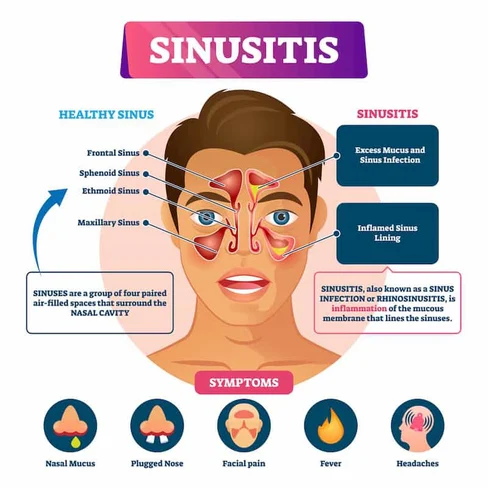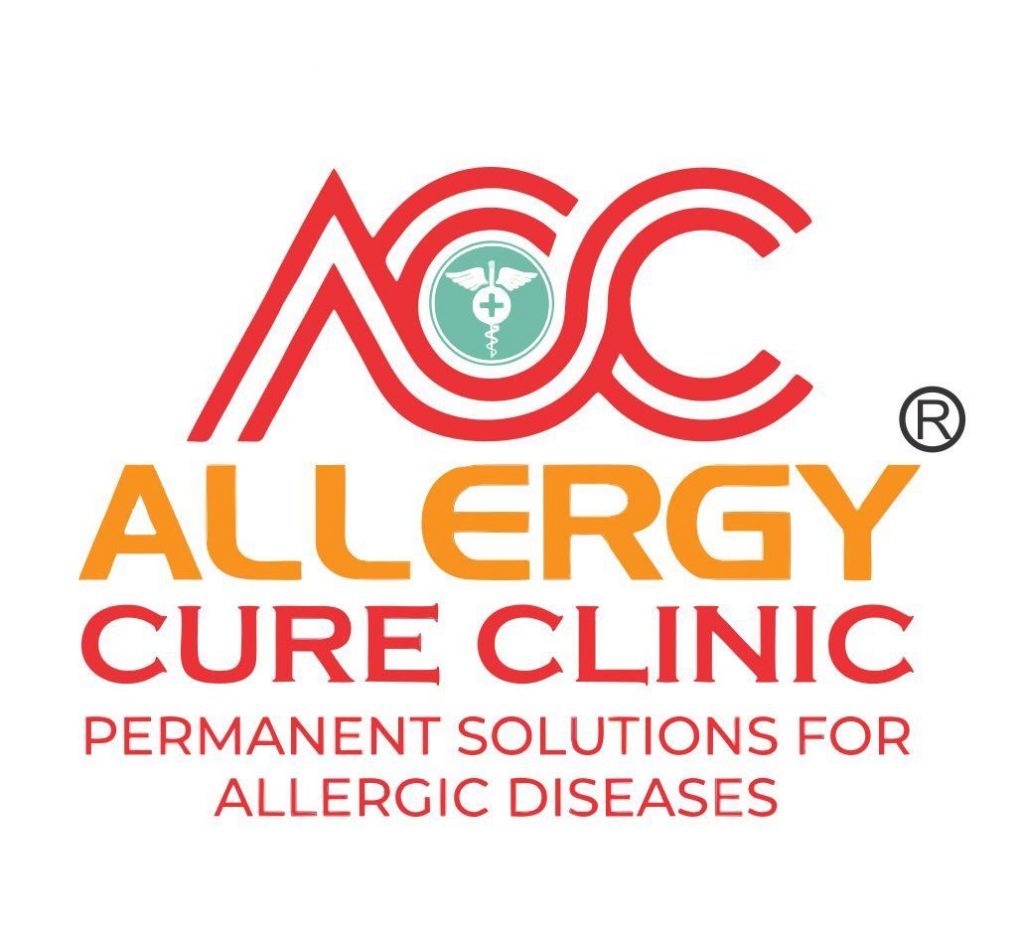what is Allergic Sinusitis
Allergic sinusitis, common in early childhood, is a reaction to exposure to inhalants such as dust, pollen, smoke and animal dander. A family history or allergic sinusitis may predispose certain individuals to be sensitive to certain foods and indoor and outdoor allergens. Although people are not born with allergies, they develop symptoms when they are repeatedly exposed to the allergen. Sinusitis can be acute, lasting less then four weeks or chronic, lasting longer than eight weeks.

symptoms of sinusitis
Allergic sinusitis is sometimes confused with non-allergic sinusitis because the symptoms are similar. A key difference is non-allergic sinusitis doesn’t usually cause an itchy nose, eyes or throat. Allergic sinusitis symptoms generally vary with the season and may include:
- Nasal congestion (sneezing, runny nose) and post nasal drip that persists for more then two weeks
- Itchy eyes, nose and throat.
- Headache, pain, tenderness, swelling and pressure around the forehead, cheeks, nose and between eyes.
- Behavioral changes including irritability, inability to focus, fatigue.
- Sleep problems such as insomnia, bed-wetting, or sleepwalking.
- Reduced sense of smell and taste.
CAUSES OF SINUSITIS
The common conditions that cause Sinus infection include:
The common cold: If a cold is not treated at the appropriate time, it may aggravte into a sinus infection.
Allergic Rhinitis: Also known as hay fever, this is an inflammation of the nose that occurs due to a heightened sensitivity to allergens. The symptoms include a constant running nose, itchy eyelids and watery eyes.
Nasal Polyps: These are soft painless growths in the inner lining of the nose, they are benign and non cancerous, however they could cause obstruction to drainage and lead to development of Sinus Infections.
Deviated Septum: This occurs when your nasal septum, the thin wall between your nasal passages has eviated (bent) to one side. It can be form birth or due to any injury to the nose.
Prevention
- Maintain strict hygiene and avoid contact with those suffering from Cold and Flu to prevent contracting respiratory tract infection
- Vaccination against preventable infections such as influenza
- Diet rich in antioxidants (Fresh fruits – like Plums, Cranberry, Grape, Peaches)
- Reduce daily stress
- Plan and prevent exposure to seasonal allergens such as pollen by wearing face masks
- Staying hydrated at all times to keep nasal secretions thinso the draingae is not blocked
- Steaminhalation/ Taking a hot shower to keep nasal passages moist
- Avoid smoking and passive smoking
